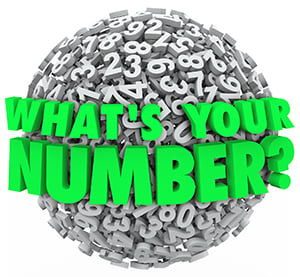 The following breakdown explains your credit score.
The following breakdown explains your credit score.
720-850: Excellent -The best financing terms and represents the best score range
700-719: Very Good- Qualifies to receive favourable financing
675-699: Average- Will qualify for most loans
620-674: Sub-prime- May qualify, but will pay higher interest
560-619: Risky- Will have trouble getting a loan
500-559: Very Risky- You need to work on improving your rating
What is your credit score?
According to Fair, Issac, the breakdown of your credit score is as follows:
- 35% of the score is determined by payment histories on your credit accounts, with recent history weighed a bit more heavily than the distant past;
- 30% is based upon the amount of debt you have outstanding with all creditors;
- 15% is produced on the basis of how long you've been a credit user (a longer history is better if you've always made timely payments);
- 10% is compromised of very recent history, based on your efforts to obtain loans or credit lines in the past few months;
- 10% is calculated from the mix of credit you hold, including installment loans (like car loans), leases, mortgages, credit cards, etc.
- Past Payment History- Past due items on file, severity of any delinquency, presence of any adverse public records, such as bankruptcy, judgements, lawsuits, liens, etc. This category alone suggests that you should make bankruptcy your last resort option only.
- Amount of Credit Owning on Accounts- How many accounts you have with balances, proportion of credit lines used to credit available proportion of installment loan amounts still owing.
- Length of Time Since Credit Established- Time since you opened your account(s) and how active those account(s) have been.
- Acquisition of New Credit- How often you have recently searched for or obtained new credit and your relative success at establishing positive credit history following past payment problems.
- Types of Credit Established- Number of and types of credit established.

